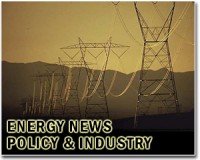 |
Washington DC (SPX) Jan 19, 2010 Would you pay more for certain products to save the planet? That's the question behind the burgeoning carbon-offset industry - proponents pay more money for carbon-producing activities (such as flying), with the idea that the carbon emissions will be balanced out by funding for alternative energy sources. At the same time, economists and climate scientists agree that a carbon tax would be the most effective means through which the U.S. could lower carbon emissions and pay for alternative energy production. However, politicians are reluctant to propose a carbon tax because taxes tend to be unpopular with constituents, especially with Republican voters. But does word choice, such as offset versus tax, really make a difference? And in addition, does our political affiliation influence how we respond to certain labels? Columbia University psychological scientists David J. Hardisty, Eric J. Johnson, and Elke U. Weber wanted to see how the way in which a concept is framed (that is, how it is labeled) affects our attitude towards it. In this experiment, volunteers (who self-identified as Democrats, Republicans, or Independents) read about a program that would increase the cost of certain carbon-producing activities but would use the proceeds to fund alternative energies or carbon capture and sequestration. For half the volunteers this surcharge was labeled as a "carbon offset," while for the other half it was labeled as a "carbon tax," yet the details of the program were the same in each case. Participants then had to choose between two identical items (e.g., airline tickets), where one cost more, because it included the surcharge. Volunteers were asked to write down their thoughts about the decision, make a choice, and also indicate whether they would support legislation making the surcharge mandatory for all products of that type. The results, reported in Psychological Science, a journal of the Association for Psychological Science, suggest a strong link between our political affiliation and how we react to certain frames. In the "offset" condition, Democratic, Republican, and Independent volunteers tended to select the more expensive, albeit environmentally-friendly, product. They were also equally likely (across party) to support making the cost increase mandatory. However, in the "tax" condition, while Democratic volunteers still opted for the costlier item, Republican and Independent participants were more likely to choose the cheaper item, and did not support legislation. In addition, analysis of the volunteers' thought processes indicates that labels may have resulted in differences in the order in which they thought about the options, in turn affecting their choices. For example, Republicans volunteers had an immediate, negative reaction to the "tax" option, which made them think about advantages of the cheaper item, which they ultimately chose. However, in the "offset" condition, Republicans listed supportive thoughts towards the surcharge, increasing the likelihood of the more expensive item being selected. The authors suggest that "policymakers (and those who advise them) would be wise to note the differential impact that policy labels may have on different groups." They conclude, "What might seem like a trivial semantic difference to one person can have a large impact on someone else."
Share This Article With Planet Earth
Related Links Psychological Science
 Rolling blackouts hit drought-stricken Venezuela
Rolling blackouts hit drought-stricken VenezuelaCaracas (AFP) Jan 12, 2010 Venezuela will be hit with rolling blackouts lasting four hours per day starting Wednesday, as part of a power-saving effort to cope with a severe drought, the head of the the state-run power company said Tuesday. In Caracas, the power cuts will begin after midnight Tuesday and will take place on alternate days in different sectors and times, Electricidad de Caracas president Javier Alvarado ... read more |
|
| The content herein, unless otherwise known to be public domain, are Copyright 1995-2009 - SpaceDaily. AFP and UPI Wire Stories are copyright Agence France-Presse and United Press International. ESA Portal Reports are copyright European Space Agency. All NASA sourced material is public domain. Additional copyrights may apply in whole or part to other bona fide parties. Advertising does not imply endorsement,agreement or approval of any opinions, statements or information provided by SpaceDaily on any Web page published or hosted by SpaceDaily. Privacy Statement |